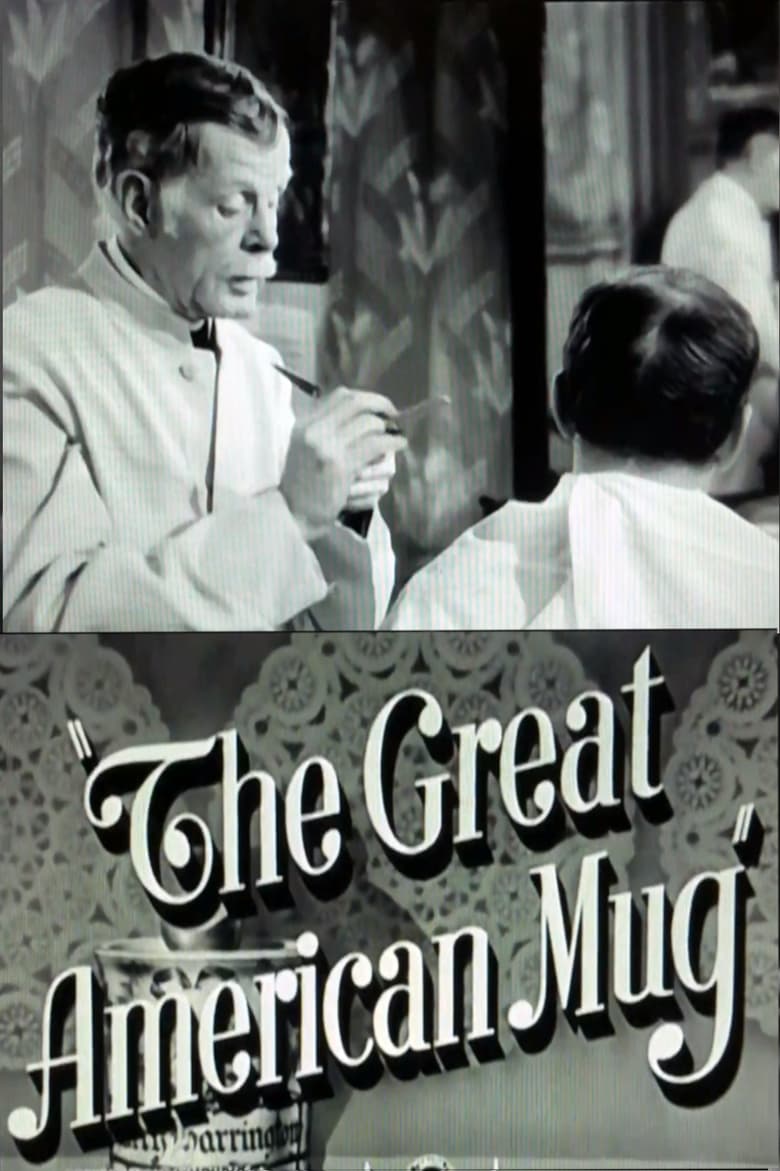Loading


The Great American Mug
Genres
History
Overview
This John Nesbitt's Passing Parade short takes a look at the typical American barbershop throughout the years.
Details
Budget
$0
Revenue
$0
Runtime
10 min
Release Date
1945-10-06
Status
Released
Original Language
English
Vote Count
2
Vote Average
6.5
Cast
Meet the talented actors who bring the movie to life.
John Nesbitt
Narrator (voice)
Harry Barris
Tipster in Barber Chair (uncredited)
Frank Darien
Old Time Barber (uncredited)
Lester Dorr
Pete Ramson (uncredited)
Mitchell Lewis
Tobacco Chewer (uncredited)
Eric Mayne
Banker (uncredited)
Pat McKee
Barbershop Customer (uncredited)
Howard M. Mitchell
Laughing Man (uncredited)
Robert Emmett O'Connor
Laughing Man (uncredited)
William Phillips
Old Time Storyteller (uncredited)
Walter Soderling
Barber (uncredited)
Arthur Space
Contemporary Barber at Middle Chair (uncredited)
Leo White
Rival Barber (uncredited)
Similar Movies
Explore movies similar to this one that you might also enjoy.
5.5
Mr. Whitney Had a Notion
Historical short showing how Eli Whitney (best known for the invention of the cotton gin) played a significant role in the introduction of mass production techniques to the USA in the late 18th century.
1949-05-07 | en
6.0
Madero of Mexico
This Passing Parade series short chronicles the political life of Francisco Madero, who tried to bring democracy and land reform to Mexico.
1942-11-28 | en
5.0
Strange Testament
This MGM Passing Parade series short tells the story of Julian Poydras, whose encounter with a girl at Mardi Gras had a profound effect on his later life.
1941-11-15 | en
6.0
Clues to Adventure
This MGM Passing Parade series short presents how separate events led to the creation of three provisions - freedom of speech, freedom of the press, and prohibition of the infliction of cruel and unusual punishments - in the U.S. Constitution's Bill of Rights.
1949-04-11 | en
6.0
Magic on a Stick
This MGM Passing Parade series short recounts how English chemist John Walker invented the wooden friction match during the 1820s.
1946-01-19 | en
4.0
The Story That Couldn't Be Printed
This John Nesbitt's Passing Parade short tells the story of John Peter Zenger, who in Colonial New York was tried for sedition based on what he printed in his newspaper.
1939-07-22 | en
6.7
Small Things Like These
In 1985, while working as a coal merchant to support his family, Bill Furlong discovers disturbing secrets kept by the local convent and uncovers truths of his own; forcing him to confront his past and the complicit silence of a small Irish town controlled by the Catholic Church.
2024-11-01 | en
0.0
The Golden Hunch
This entry in John Nesbitt's "Passing Parade" series is about the great moments in the lives of famous men who found found an answer or made a great discovery in the flash of a golden hunch.
1945-11-15 | en
6.5
Souvenirs of Death
This MGM John Nesbitt's Passing Parade series short tells the story of how a Mauser pistol used on the battlefield by Germans during WWII makes its way into the hands of an American gangster.
1948-06-19 | en
0.0
American Spoken Here
This MGM John Nesbitt's Passing Parade series short takes a look at the origins of North American slang.
1940-11-30 | en
0.0
The Hidden Master
Shows how important luck can be in a person's life.
1940-04-20 | en
0.0
Последствия войны
2020-05-04 | ru
6.0
The Story of Alfred Nobel
This John Nesbitt's Passing Parade short tells the story of Alfred Nobel, who invented dynamite, and later established the Nobel Prize.
1939-02-18 | en
6.0
Angel of Mercy
This MGM Passing Parade series short tells the story of Clara Barton, the founder of the Red Cross.
1939-05-20 | en
0.0
Yankee Doodle Goes to Town
Made just before America would be forced into the Second World War, this short subject is a brief dramatized history of American democracy. It targets a perceived threat to democracy from board room and soapbox fascists who advocated a government based upon contemporaneous European models.
1939-06-17 | en
0.0
Bigfoot: America's Abominable Snowman
Bigfoot: America's Abominable Snowman focuses on the legend of Bigfoot/Sasquatch throughout North America. Dr. John Napier acts as host and analyst of the evidence presented in the documentary, including Roger Patterson's famous October 1967 film allegedly showing a Bigfoot in Northern California (Bluff Creek). Numerous eyewitness testimonies are given along with expert opinions on the subject matter.
1968-07-27 | en
1.0
A Lady Fights Back
The saga of the Normandie is recounted from her life as a luxury liner, the horrific fire that nearly destroyed her, and her resuscitation to join in the war effort. A John Nesbitt's Passing Parade short.
1944-11-11 | en
0.0
A Way in the Wilderness
This Passing Parade entry tells the story of Dr. Joseph Goldberger (1874-1929), a Hungarian immigrant who devoted his life to finding the cause of pellagra, a disease that killed hundreds of thousands in the southern United States. Although the medical community believed that the condition was caused by a virus, Goldberger proved that a healthy diet was the cure.
1940-06-22 | en
0.0
The Seesaw and the Shoes
This short shows how two objects led to important discoveries. Children playing with a seesaw inspire French physician Rene Laennec to invent the stethoscope, and a pair of shoes made of caoutchouc lead Charles Goodyear to discover the process for vulcanizing rubber.
1945-05-05 | en
0.0
One Against the World
This short film presents the story of Dr. Ephraim McDowell, who came under scrutiny for his pioneering of surgical practices.
1939-08-19 | en